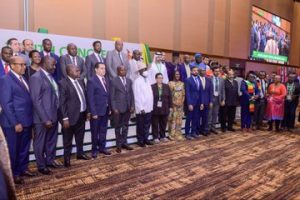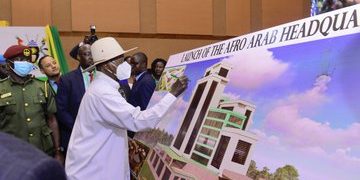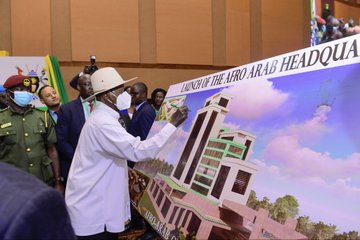Munyonyo — President Yoweri Kaguta Museveni has urged young people across Africa and the Arab world to embrace ideology, unity, and innovation as tools for peace and prosperity.
The President made the call while officiating at the closure of the Afro-Arab Youth Congress 2025 at Speke Resort Munyonyo, which ran from October 6 to 10, 2025, under the theme “Amplifying Youth Voices for Peace, Unity and Prosperity.”
The five-day congress brought together youth leaders, government officials, diplomats, and representatives from across Africa and the Arab world to chart a new path for collaboration and shared progress.
President Museveni noted that Africa’s population currently stands at 1.5 billion people and is projected to reach 2.5 billion in the next 30 years — a demographic trend that positions the continent as the future of global growth.
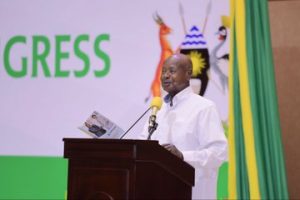
“You young people need to know that you belong to the future of the world. The future belongs here in the Afro-Arab world,” said Museveni.
He said Africa is richly endowed with favourable weather and abundant natural resources, but cautioned that this environment also sustains challenges such as tsetse flies and malaria.
“Africa has a good climate, but that climate is also good for Africa’s enemies like tsetse flies, malaria, and other diseases,” he remarked, urging young innovators to find homegrown solutions to such problems.
On Ideology and Africa’s Strategic Bottlenecks
President Museveni identified ten strategic bottlenecks that continue to hinder Africa’s transformation, emphasising that ideological disorientation remains one of the most dangerous.
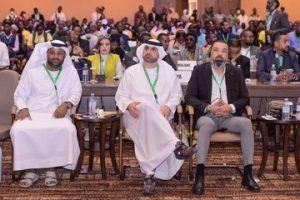
“The most important question in politics is: is it about identity or about interests?” he asked. “In the case of Sudan, some people destroyed their country by introducing politics of identity — of tribe and religion. Even here in Uganda, some tried to bring it, but we rejected it. We said what we need is politics of interest, because prosperity comes from selling a good or a service, not from tribalism.”
He warned that political parties based on tribal or sectarian lines cannot build strong national movements.
“How can you have a political party that can win elections if you are emphasising tribes?” he said. “Such divisions destroy nations rather than build them.”
On Market Integration and Economic Growth
The President also cited a fragmented market as another obstacle to Africa’s progress, noting that genuine development requires both production and consumers with purchasing power.
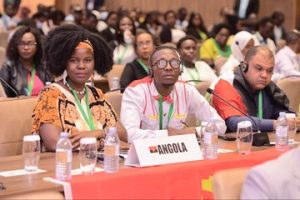
“Development comes when you produce a good or service. You must have a society of wealth creators. But Africa is divided into 55 small markets — who will buy what you produce?”
He observed that while regional blocs such as the East African Community (EAC) and ECOWAS exist, they are not yet fully functional, and the Maghreb Union has struggled to take off due to internal challenges.
Museveni urged the youth to adopt ideology-driven leadership, grounded in patriotism and Pan-Africanism. “What is your ideology?” he asked. “I recommend to you the ideology of patriotism — love your country, whichever it is — but also be young Pan-Africanists because Uganda cannot thrive without Africa.”
He added that Ugandans had learned from experience that their internal market alone cannot sustain production. “Ugandans used to be sectarian, but after waking up, they realised that the internal market is not enough for their goods,” he said. “Ideology is like a medical prescription — if it is wrong, the patient will die.”
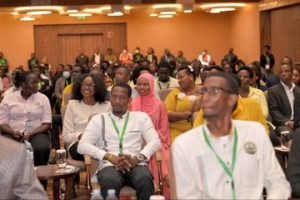
On Youth Empowerment and Collaboration
President Museveni also launched a fundraising drive for the Afro-Arab Youth Congress to strengthen youth empowerment programs across Africa and the Arab world.
Ms Chido Cleopatra Mpemba, Special Envoy to the African Union Chairperson on Youth and Gender Issues, commended Uganda’s leadership for giving young people and women a meaningful voice in governance.
“We thank President Museveni for giving a platform to women. Uganda is an example to the continent because its Cabinet includes women at the highest levels — the Vice President, the Prime Minister, and several other key ministers,” she said.
Kenya’s Deputy President, Kithure Kindiki, praised the Afro-Arab Youth Congress as a bridge between the two regions. “This congress provides a vital forum for building understanding and cooperation between Africa and the Arab world,” he said, adding that, “Young people today are creating enterprises that offer new solutions. They are not just leaders of tomorrow — they are leaders of today.”
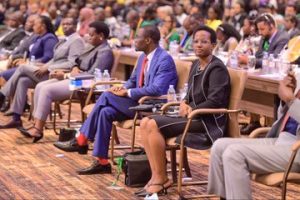
Reaffirming Kenya’s commitment to regional cooperation, Kindiki told delegates: “To the youth, this is your time to stand. The future is not promised — it is created.”
Representing His Highness Sheikh Mohamed bin Zayed Al Nahyan, President of the United Arab Emirates, the UAE delegation reaffirmed the Emirates’ belief in youth as drivers of transformation.
“We firmly believe in the youth as changemakers. In the UAE, we launched a national youth agenda to empower young people to shape the future. My dear youth, we believe in you — you have the passion and energy to transform our world.”
H.E. Abdul Haddi Lahweej, President of the Afro-Arab Youth Congress, underscored the shared destiny of the two regions. “Arab and African nations live side by side and face similar challenges,” he said, revealing that Libya is “providing thousands of jobs to support youth and help rebuild our nation.”
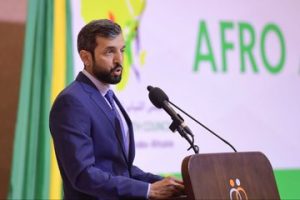
He questioned Africa’s paradox of abundance and poverty: “How can Africa, with all its wealth, still be poor? Africa needs to push its pace and change how it does business if we are to catch up with the rest of the world.”
Lahweej also called for peace and solidarity, particularly in defence of Palestine. “Africa must push for peace and stop wars. We must also strongly condemn oppression against Palestinians because peace is not an option — it is a necessity.”
